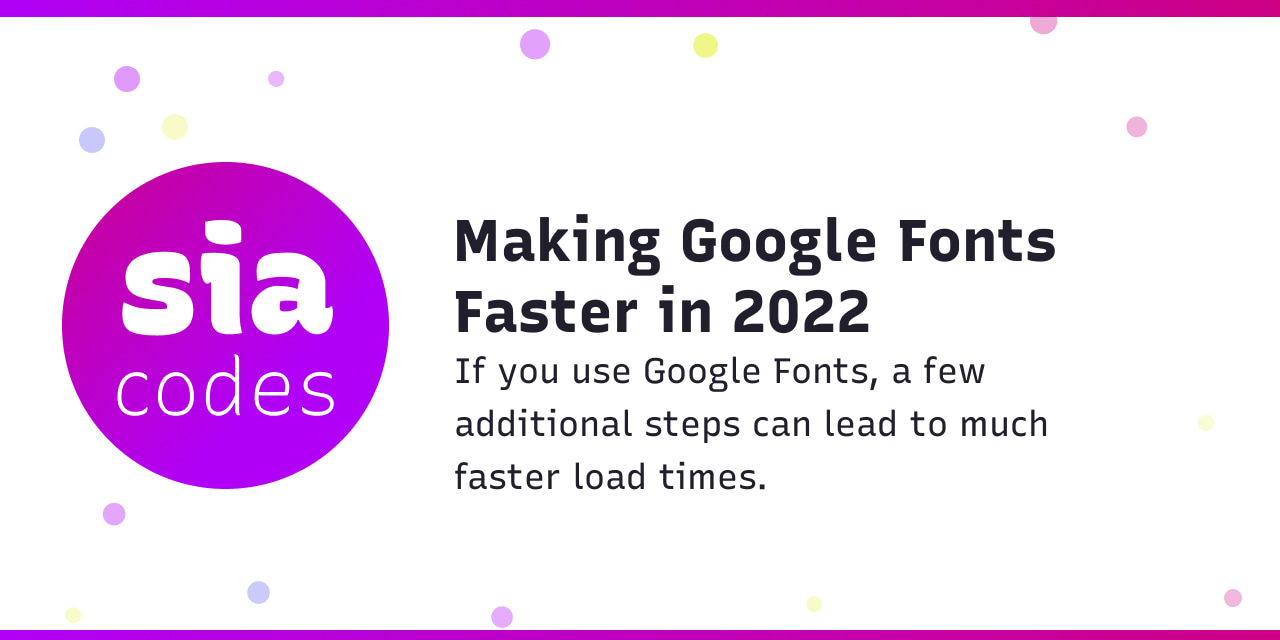Loading google fonts
I'm trying to load a google font with the <Link> component but it doesn't seem to be working
<Link href="https://fonts.googleapis.com/css2?family=Cedarville+Cursive&family=Recursive:wght@300;400;500;600;700;800&display=swap" rel="stylesheet" />
It puts an <a> tag in the body with link=true as an attribute but nothing the font is not working.
<Link href="https://fonts.googleapis.com/css2?family=Cedarville+Cursive&family=Recursive:wght@300;400;500;600;700;800&display=swap" rel="stylesheet" />
It puts an <a> tag in the body with link=true as an attribute but nothing the font is not working.


